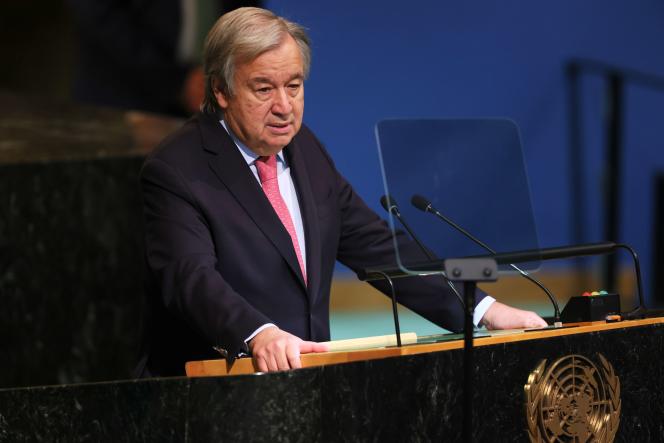The United Nations General Assembly kicked off with a clarion call for institutional reform and international unity as Secretary-General Antonio Guterres demanded sweeping changes to multilateral institutions and a restructuring of global financial systems. Amid a ‘Ukraine-centric’ discourse led by US President Joe Biden and Ukrainian leader Volodymyr Zelensky, the emphasis on Russia’s aggression has drawn criticism from developing nations, asserting that it detracts from other pressing global concerns.
In his somber opening address, Guterres painted a grim picture of a world in turmoil, plagued by geopolitical tensions, mounting global challenges, and an inability to forge cohesive responses. He underscored the urgency of adapting international institutions to the evolving world, stating, “Our world is becoming unhinged. Geopolitical tensions are rising. Global challenges are mounting. And we seem incapable of coming together to respond.”
Guterres went on to emphasize that the existing institutional framework, notably the UN Security Council, needs to evolve to effectively address contemporary crises. He implored world leaders to take concrete actions in dealing with the deepening climate emergency, escalating conflicts, disruptive technological advancements, and a global cost-of-living crisis that has exacerbated hunger and poverty worldwide. The Secretary-General urged leaders to demonstrate their commitment through actions rather than mere rhetoric.
In his address, President Joe Biden directed his focus squarely on Russia’s ongoing war in Ukraine, issuing a stern warning to the international community. “If we abandon the core principles of the UN Charter to appease an aggressor, can any member state in this body feel confident that they are protected? If we allow Ukraine to be carved up, is the independence of any nation secure?” Biden questioned.
He further stressed the need for collective action, urging nations to unite against Russian aggression and send a clear message to potential aggressors. “We must stand up to this naked aggression today to deter other would-be aggressors tomorrow,” Biden declared, calling upon countries to stand in solidarity with Ukraine.
Volodymyr Zelensky, donning his military fatigues, also made a compelling case for pushing back Russian forces in Ukraine to allow the world to address pressing global challenges. He asserted that resolving the conflict in Ukraine was a prerequisite for tackling these issues effectively.
Meanwhile, on the sidelines of the UNGA, Pakistan’s caretaker Prime Minister Anwaarul Haq Kakar engaged in crucial meetings, strengthening diplomatic ties and discussing avenues for economic cooperation. Among these meetings was a bilateral discussion with Iranian President Ebrahim Raisi. The two leaders explored opportunities for enhancing economic cooperation, underlining the significance of regional collaboration in fostering prosperity.
As the UNGA unfolds, the global stage remains a dynamic arena where leaders confront a multitude of pressing challenges, from the urgency of climate change to the imperative of deterring aggression in Ukraine. Secretary-General Guterres’ call for institutional reform echoes a collective plea for adaptability and unity in addressing the ever-evolving global landscape.















